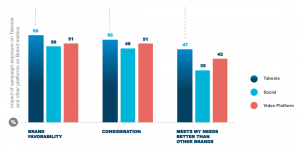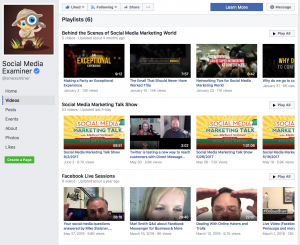In this blog, I outline how to avoid a number of the most prevalent gaffes businesses encounter on social media.
Now, some of these points *should* be obvious…but just a quick scroll through twitter will show you just how many companies are still getting it very, very wrong.
Let’s start with the more common, and forgivable, social media sins and work our way up to the juicy stuff…
Be organized, consistent, and regular
OK, so maybe ‘disaster’ would be a strong word in this case – the stakes aren’t quite that high. However a spotty social media presence will seriously hinder the effectiveness of your efforts. It is also important to list here as this is the most common social media mistake we come across.
If you’re a small business the likelihood is that you’re pretty busy. Too busy to dedicate much time to social media. We understand. As such, busy companies are often disorganised when it comes to social media, by turns leaving their accounts dormant for weeks and spamming their followers with sudden flurries of posts when time allows.
Under and over posting puts people off and you will struggle to build and maintain a following if you do either. Build social media activity into your daily schedule to avoid this outcome. Check out our previous ‘How To’ for tips on effectively managing your accounts.
Keep control of your accounts
We’ve seen this one quite a lot too. Back in 2009, setting up a Facebook or Twitter account probably didn’t seem like a particularly important task. Perhaps you offloaded it on a junior member of staff, intern or even the work experience kid. We’ve spoken to many clients who no longer have access to their own social media accounts. Often because they were set up by an ex-employee using a now redundant email address. In some cases, the person who set up the account is long-forgotten, unreachable, or have left under…let’s say less than ideal circumstances.
If you don’t have control over the login credentials, you don’t have control of the accounts. Without access to the email used to create the profile there is little that can be done to regain control once lost. Even getting the accounts closed down can be tricky. So, prevention is the best cure in this case. Never let an account be set up using a personal email (use a shared account like ‘info@yourbusiness’ or ‘socialmedia@yourbusiness’) and never allow just one person to have total control over it.
Also, be sure to change your passwords whenever someone with access leaves the company, especially if they leave on bad terms. HMV learned that one the hard way back in 2013 when, after learning they and hundreds of their co-workers were being laid off, employees hijacked the Twitter account to share their anger. HMV didn’t know their own log in credentials and so were helpless to stop the barrage of tweets.

Don’t ‘Sell! Sell! Sell!’
It’s social media. The clue’s in the name. Social media is, at its core, a place for real people to communicate, to share the their everyday experiences, opinions, and passions. Brands, therefore, need to be aware of whose territory they’re in and tread carefully.
This is not the platform to pitch a hard sell. Your activity in these spaces should be aimed at reputation building and brand awareness, rather than direct conversion to sales. If you have a genuinely great offer, sure give it a push, but you need to balance this with plenty of interesting content too.
This also means not shoehorning your sales pitch into an existing conversation. DiGiorno Pizza fell foul of this last September. The brand blindly hopped on the trending ‘Why I Stayed’ hashtag to push their product. They were too focused on shouting their message and didn’t take the time to listen to the conversation – which was in fact about victims of domestic violence candidly sharing their traumatic experiences.
People very quickly get bored with businesses who constantly promote themselves on social media, and this kind of behaviour will not only annoy people, it could also offend them. So, if you don’t want to get Unfollowed pronto, ditch the sales talk and get social.
Check your work
Everyone has tweeted a typo or the wrong use of ‘there/their/they’re’ at some point, we forgive you. What’s harder to forgive is frequent bad spelling and careless typing. Not very professional chaps!
Cast your mind back to your school days. Remember that note, so frequently scrawled in the margin of your essay in disapproving red ink, ‘Check your work!’ Always read your posts back to yourself before publishing. If spelling and grammar are a real problem for you, it’s time to seriously consider getting someone else involved to handle social media for you.
Beware of automation
Automation and scheduling can be a Godsend for busy businesses. But, you can’t just schedule your posts, sit back and forget all about them; you need to remain in control.
Most people will be familiar with these cringe-worthy Twitter gaffes from 2013. American Football team the New England Patriots fell foul of over-automation. When a twitter competition winner was automatically selected, the account posted a congratulatory tweet to them. This tweet, of course, included their twitter handle, and the racial slur contained in said handle. Oh dear.
It seems no one is safe, even tech giant Apple. Last year, shortly after the death of comedian Joan Rivers, her social media accounts pushed pre-scheduled ads for the new iPhone 6. The internet, of course was quick to jump all over this and the endorsements were screen-grabbed and reposted widely before the original post could be removed.

Don’t censor your customers*
The biggest concern most clients I speak to have regarding social media is complaints. Does having a public Facebook or Twitter account open the floodgates to negative comments? Well yes, and no. If you have dissatisfied customers, they’re going to complain about you online, whether you’re there to hear it or not. So, although having a presence online will aggregate these complaints, conventional wisdom indicates that you’re in a stronger position if you’re present to be part of that conversation.
The urge to delete negative comments from your Facebook page is understandable. You want your social media pages to show the best, not the worst of you. However, it is really not cricket. In one particularly shameful example, the Blackpool Broadway Hotel was caught fining customers who left negative reviews on TripAdvisor (how they thought that wouldn’t end up on social media is beyond me…).
Any complaint needs to be taken seriously. Publicly reply to any public complaints, explain and defend yourself if necessary but remain polite, apologetic and, if you’ve made a mistake, own up to it. Every business has their detractors and people appreciate it when negative comments are handled with dignity and respect.
*An exception to this rule is if you are being trolled by nuisance posters. By this I mean anyone posting offensive content to your account, employees or customers, or anyone repeatedly and systematically attacking your brand, without a genuine complaint against you. In these cases delete, block and report them immediately.
Keep it classy
It hurts when someone attacks your business online, especially when comments can be very personal and unpleasant. People, in general, are a lot nastier when there’s a computer screen between you and them!
No matter how hurtful the complaint, you need to respond appropriately. If someone’s really got to you, take a step back and avoid responding until you’ve cooled down. Remember, some people want to provoke you into an embarrassing public fracas; don’t give them the satisfaction. If you’ve seen the movie Chef (2014), you’ll no doubt remember the lead character being goaded into an ugly public twitter row following a negative restaurant review…
If possible, get a cool-headed colleague to help you formulate a calm and dignified response. Make sure you have your facts straight to adequately defend yourself and be ready to honestly and genuinely apologise if you are at fault.
Take the high road; don’t get dragged into the gutter. If you ever needed a cautionary tale, look no further than the now infamous Facebook rant from the owners of Amy’s Baking Company (as featured on the US version of Ramsay’s Kitchen Nightmares) [Warning – link contains some rather colourful language].

Although the world of social media is filled with potential pitfalls, avoiding these kind of disasters isn’t really too difficult. It’s all about giving your social media activity appropriate care and attention. If you approach your conversations on these platforms with thoughtfulness and respect, this will reflect positively on you and your business.
This blog originally appeared on brightfive.com and has been republished with permission.
Digital & Social Articles on Business 2 Community(84)









